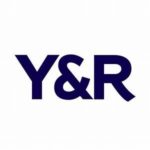 I was with struck with both a twinge of disappointment and nostalgia when I read the news that WPP is considering folding the Young & Rubicam agency into VML, renaming the entity VMLY&R.
I was with struck with both a twinge of disappointment and nostalgia when I read the news that WPP is considering folding the Young & Rubicam agency into VML, renaming the entity VMLY&R.
Born in the 1920’s at a time before television and digital media even existed, Young & Rubicam was truly an iconic agency brand that went on to produce memorable work for clients such as Jell-O (“Bill Cosby with Kids”), Lays Potato Chips (“Betcha can’t eat just one”) and Bristol-Meyers (“Excedrin headache”) during the 1960’s and 70’s. A cutting-edge agency that produced the first color TV commercial perhaps it is only fitting that it is being merged into an agency which specializes in leveraging emerging technologies and digital media to help brands forge and manage consumer connections in the twenty-first century.
For sentimentalist, however, who remember the golden era of advertising, when full-service agencies ruled, serving their clients’ as valued, trusted strategic partners and when remuneration was straightforward and transparent (15% commission rate) Young & Rubicam’s transformation into VMLY&R is but another sign of an industry in search of a new identity. Thus the Y&R nameplate will join the likes of other legendary shops that have become distant memories of a bygone era:
- Ted Bates
- N.W. Ayer
- Marsteller
- Needham Harper & Steers
- Wells, Rich, Greene
- Kenyon & Eckhardt
- Papert, Koenig, Lois
The decade of the sixties ushered in the rise of the agency holding company, courtesy of Marion Harper and his Interpublic Group of Companies and a turn to Wall Street for public funding to fuel three decades of merger and acquisition activity, the likes of which we will probably never see again.
This ultimately led to the decoupling of agency services and the emergence of specialist agencies. Initially, this was a tenable situation when there were a limited number of agencies including, creative shops, media agencies, diversity firms and direct marketing agencies. But as the number of areas of specialization continued to mushroom, so too did advertisers’ agency rosters as shops focusing on disciplines such as; experiential marketing, digital media, social marketing and brand activation were born.
The industry’s move toward specialization led to fragmentation, increased competition, margin erosion and talent acquisition and retention challenges for the agencies themselves. Some have argued that this scenario, coupled with the emerging role of corporate procurement in the marketing arena, and the downward pressure on agency fees that resulted, fueled the growth in non-transparent revenue practices implemented by many agencies.
Ironically, while these practices satisfied the holding companies short-term profit motivations, the revelation of these non-toward initiatives, which belied what advertisers believed to be an agency’s fiduciary responsibilities ultimately cost them the trust and confidence of advertisers. This, in turn, has opened the door for management and tech consulting firms to challenge ad agencies traditional market position.
Interestingly, the approach taken by the consulting firms is more reminiscent of the old “full-service” agency model, than the multi-brand specialist approach, which epitomizes today’s holding company model. Monolithic, global consulting brands delivering strategic, end-to-end, integrated solutions through a team of diverse, highly trained consultants steeped in their firm’s culture, processes and tools.
It is likely that WPP’s move to merge Y&R and VML signals the beginning of the next wave of holding company consolidations and potentially divestitures as they seek to pare their agency brand portfolios in an effort to eliminate redundancies, reduce overhead costs and streamline service delivery. Wave one this effort led to the disappearance of many of the great names in the agency world, either dropping them from their respective company nameplates or opting for acronyms, which resulted in Ogilvy, Benson & Mather being shortened to Ogilvy, Batten, Barton, Durstine & Osborn becoming BBDO and Doyle Dane Bernbach adopting the DDB moniker.
In the end, agencies can only hope that their consolidation and repositioning efforts boost their position with advertisers and assist them in defending their core business. After all, the challenge, as the legendary Bill Bernbach once intoned, is; “Getting your product known isn’t the answer. Getting it wanted is the answer.”
